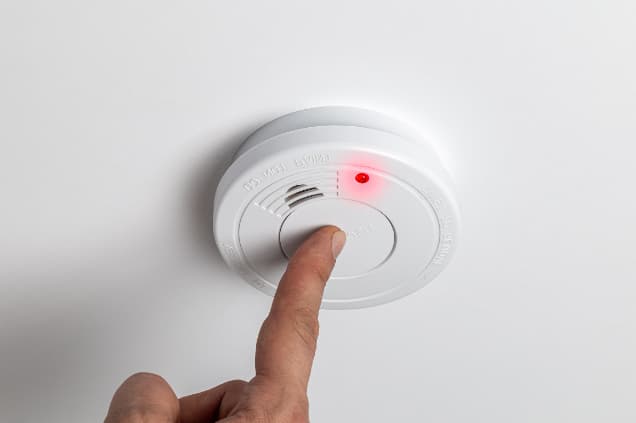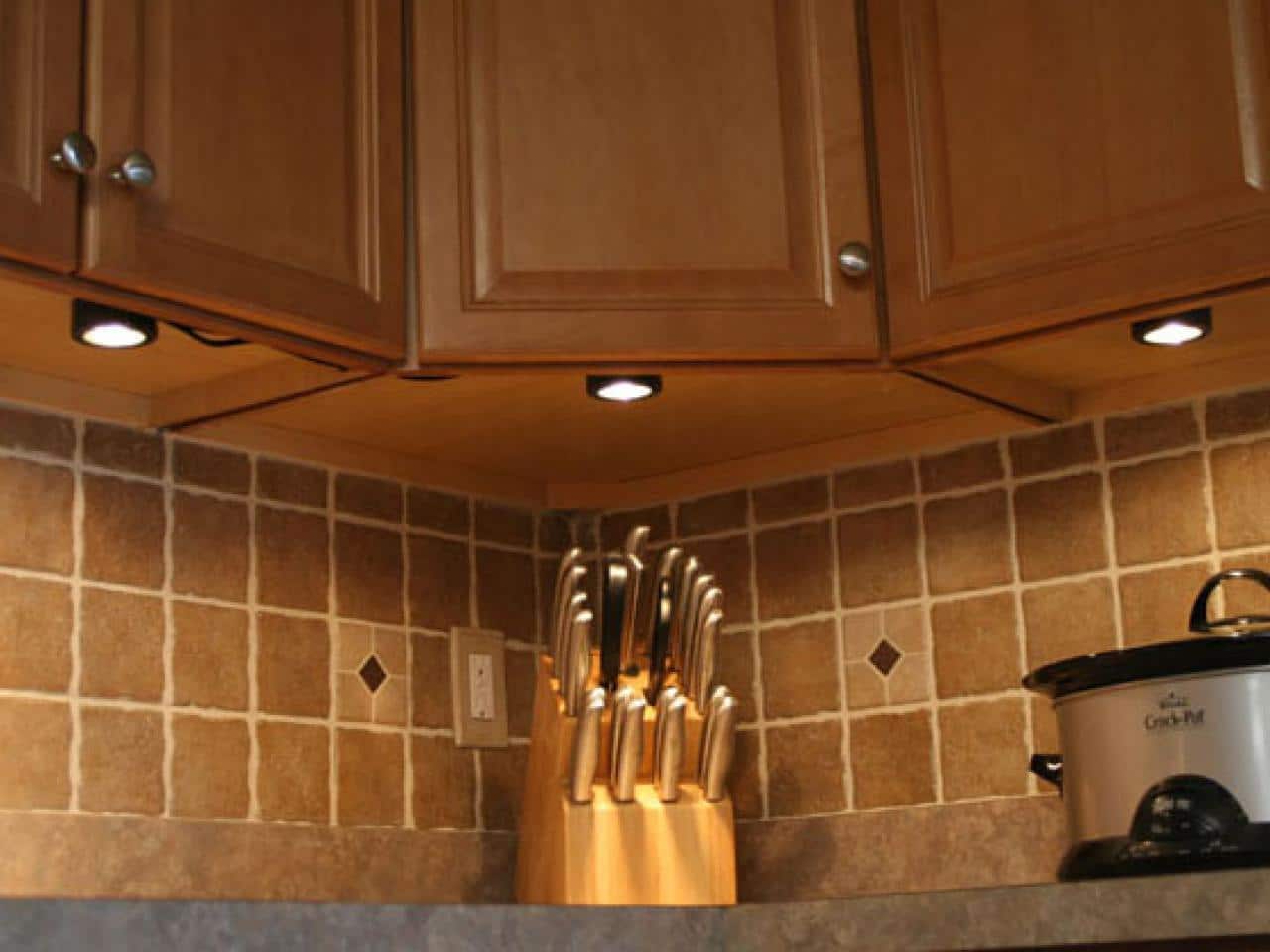The high-pitched beep of a smoke detector is a sound that strikes fear into the hearts of homeowners everywhere. That shrill alarm means danger – potentially life-threatening danger – is nearby.
But what about when your smoke detector starts blinking instead of beeping? The flashing red light can be just as panic-inducing, leaving many to wonder what’s really going on.
In this article, we’ll decode the meaning behind a blinking red smoke detector light.
We’ll provide tips on troubleshooting and maintaining your smoke detectors so you can rest easy knowing your home and family are protected.
Smoke Detector Blinking Red

If you want to know more about Smoke Detector Blinks Red then read this article carefully.
Also Check: How to Stop Smoke Detector from Chirping without Battery
Why Do My Smoke Detector Blinking Red?
Smoke detectors are designed to be highly visible safety devices. This is why most feature bright colors and blinking indicator lights.
The main reasons a smoke detector blinks red include:
- Low battery: The red blinking light serves as a warning that the batteries need to be replaced. Most detectors will also emit a chirping noise when the batteries run low.
- Alarm is active: When smoke is detected, the alarm will sound and the light will flash rapidly to alert occupants of danger.
- Normal operation: On many models, the red light blinks every 30-60 seconds just to indicate the device is armed and working properly.
So in most cases, a blinking red light does not necessarily mean there’s an emergency. It’s simply part of the smoke detector’s regular function.
Troubleshooting Smoke Detector Blinking Red Issue:
While a blinking red light is usually normal, there are times when it could signal a problem. Here are some troubleshooting tips if your smoke detector is flashing red:
- Replace the Batteries
The first step is to replace the batteries. Smoke detectors often flash red when the batteries are getting low. Use new batteries of the correct size and type recommended by the manufacturer.
Pay attention to the expiration date and don’t use old batteries that have been sitting around for years. Installing fresh batteries should stop the blinking and chirping.
- Check the Alarm Sensitivity
If new batteries don’t solve the issue, try cleaning the smoke detector chamber. Dust and debris can accumulate and affect sensitivity.
- Remove the detector cover and use compressed air to blow out any dust.
- Use a vacuum crevice tool to suck up any remaining dirt inside the chamber.
- Never use water, chemicals, or soap to clean a smoke detector as this can permanently damage the unit.
- Look for Damage
Inspect your smoke detector closely for any physical damage. Cracks in the plastic housing or contacts can prevent the device from operating correctly. A damaged detector that’s malfunctioning needs to be replaced.
- Test the Alarm
Check that the alarm is actually working by pressing the test button. You should hear a loud beeping if the detector is operating properly. No sound indicates it’s broken.
- Replace Old Smoke Detectors
Smoke detectors do not last forever. The sensors become less sensitive over time. If your device is over 10 years old, it should be replaced even if the blinking light issue seems to be resolved with battery changes.
Preventing Blinking Red Lights
With proper maintenance and care, you can avoid many blinking red light episodes and false alarms:
- Change batteries annually – Mark your calendar and make smoke detector battery replacement an annual ritual, even if they don’t seem low.
- Clean detectors regularly – Dust the units every few months to keep the sensors clear of debris.
- Replace detectors every 10 years – Smoke detectors become less reliable as they age. Install new ones according to manufacturer specifications.
- Eliminate cooking smoke – Prevent kitchen smoke from reaching detectors. Turn on ventilation fans and open windows when cooking.
- Keep detectors away from bathrooms – Steam and shower moisture can set off false alarms. Install at least 10 feet away from bathrooms.
- Avoid decorative covers – Don’t cover smoke detectors with ornate plastic covers which can block smoke. Use plain covers designed to allow smoke flow.
When to Replace Your Smoke Detector?
If you’ve tried everything and the blinking red light persists, then it’s probably time to replace your smoke detector completely. Here are some signs your device is due for retirement:
- It’s over 10 years old.
- The blinking persists after replacing the batteries.
- The alarm no longer sounds when tested.
- It fails to go off during smoke events.
- There are physical cracks or damage.
Plan to replace smoke detectors every 8-10 years or according to manufacturer guidelines. An outdated smoke detector provides inadequate fire protection.
When installing a new smoke detector, follow local building codes and NFPA recommendations:
- Put smoke detectors on every level of the home.
- Install inside each bedroom and sleeping area.
- Place detectors on the ceiling at least 4 inches from the walls.
- Avoid installation near vents, windows, or excess humidity.
Smoke Detector Features
When purchasing replacement smoke detectors, look for models with the latest features:
- Dual sensor – Detects both smoke and carbon monoxide with one device. Ideal for hallways and areas near gas appliances.
- 10 year battery – No battery replacement is required for the lifespan of the alarm. Eliminates low battery false alarms.
- Hush button – Temporarily silences false alarms from cooking smoke or steam. The button also tests the alarm.
- Interconnection – Links all smoke detectors so when one sounds, they all sound. Alerts occupants no matter where danger originates.
- Voice alert – Announces audible warnings in addition to alarm sounds. Helpful for those hard of hearing.
- Remote access – Allows you to monitor detector status using a smartphone. May require a subscription.
Smoke Detector Placement
Where you place smoke detectors can impact their performance and blinking light issues:
- Avoid cooking areas – Keep detectors at least 10 feet from kitchens where cooking smoke can set them off.
- Elevate detectors – Mount on the ceiling in the center of hallways and rooms. Smoke rises so ceiling placement is optimal.
- Include family rooms – In addition to bedrooms, install detectors in dens, playrooms, and other living areas where people congregate.
- Watch out for dust – Avoid installing near ceiling fans, ventilation systems, and other sources of dust and debris that can affect sensitivity.
- Check compatibility – If interconnected detectors are desired, ensure the models you select are compatible before installing them.
- Mind humidity – Prevent false alarms by keeping detectors out of steamy areas like bathrooms or laundries. Pick detector types designed to prevent moisture issues.
Smoke Detector Maintenance
To keep smoke detectors working properly for the long haul:
- Test alarms monthly by pressing the test button. Make it part of your routine.
- Thoroughly clean smoke detectors twice per year using compressed air or a vacuum hose. Never use water or chemicals.
- Replace batteries once a year. Pick a consistent date you’ll remember and stick to it.
- Dust or vacuum the outside casing periodically to remove surface dirt and dust.
- If detectors are interconnected, test all of them when one sounds to ensure the linkage is intact.
- Follow all manufacturer guidelines for cleaning and maintenance – don’t take shortcuts.
Proper smoke detector maintenance takes just minutes but provides peace of mind that your family will be alerted quickly in case of a nighttime fire emergency.
Smoke Detector Problems to Watch For
Be on the lookout for these signs of trouble with your smoke detectors:
- Chirping, beeping, or blinking outside of battery changes.
- Frequent false alarms for no apparent reason.
- Failure to alarm during smoke-producing events like cooking.
- Lack of sound when the test button is pushed.
- Cracked or damaged plastic housing.
- Evidence of moisture damage like water spots.
- The presence of cobwebs, thick dust, or insects inside the unit.
Any of these issues indicate it’s time to thoroughly clean, replace batteries, or install entirely new detectors. Don’t ignore warning signs that your smoke detectors need attention.
What to Do When the Smoke Detector Alarms?
When you hear the loud beeping of smoke detector alarms and see flashing red lights, take immediate action:
- Get everyone out of the home as quickly as possible via the nearest exit. Don’t stop to get dressed or collect belongings.
- Call 911 from outside the home. Never assume someone else has called emergency responders.
- If smoke and heat prevent you from exiting, stay low and cover your mouth with a damp cloth to breathe. Go to a window and signal rescuers.
- Once safely outside, account for everyone and make sure nobody re-enters the home until fire officials say it’s safe.
- Never ignore a smoke detector alarm, even if you suspect it might be a false alarm. Proceed as if a real fire is in progress for your safety.
- If the alarm was triggered by cooking smoke and there’s clearly no fire danger, open doors and windows to air out the detectors before silencing them.
Smoke detectors provide an early warning to allow people to safely evacuate during house fires. Always treat alarms seriously and evacuate immediately when they sound. Don’t hesitate because mere minutes can mean the difference between life and death in a fire emergency.
Smoke Detector Blinking Red: Final Thoughts
Seeing a mysteriously blinking red light on your smoke detector can cause understandable concern. However, in most cases, it simply means low batteries or normal operation. With a few troubleshooting tips, you can diagnose the meaning behind the blinking and keep your home safe.
Test alarms monthly, clean detectors regularly, and replace units every 10 years. If despite your best efforts the blinking persists, play it safe and install fresh new smoke detectors.
Be vigilant in performing smoke detector maintenance. Don’t let dead batteries or malfunctioning units give you a false sense of security. Protect what matters most with properly functioning smoke detectors.
The loud beep of an alarm serves its purpose to notify occupants of danger. But even just seeing that little flashing red light is enough to trigger unease. Now that you know what a blinking smoke detector means, hopefully, you can breathe a little easier.
FAQs:
- Why does my smoke detector keep blinking red every 30 seconds?
The majority of smoke detectors blink red every 30-60 seconds during normal operation. This intermittent flashing shows the device is armed and the alarm works properly. It’s likely just letting you know all systems are going.
- My smoke detector chirps with a blinking red light. What does this mean?
The combination of chirping and blinking means the batteries are low. The smoke detector is alerting you that its batteries need to be promptly replaced to continue functioning. Chirping with a red flashing light is the most common low battery indicator.
- What causes false alarms with blinking red lights on smoke detectors?
Dirty or aging smoke detectors are the most likely culprits for false alarms. Dust, insects, and grime around sensors can make them overly sensitive while years of use reduce reliability. Clean or replace detectors to resolve unwarranted blinking red lights and false alarm events.
- Why does my new smoke detector keep blinking?
It’s natural to be concerned when a new smoke detector blinks red. However, modern units often have a blinking light to show they’re working correctly. If the blinking persists after battery changes, test the alarm and ensure there’s no damage. As long as it functions normally, the blinking light is no cause for worry.
- How often should you replace smoke detector batteries?
Smoke detector batteries should be replaced yearly. The easiest way to remember is to swap batteries when you change your clocks back from daylight savings time each fall. Stick to an annual battery replacement schedule to prevent low battery issues that result in blinking lights and chirping.
- Do smoke detectors really expire after 10 years?
Yes, the sensors in smoke detectors become less sensitive over time. Ten years is the maximum reliable lifespan recommended for residential smoke detectors. After 10 years, you run the risk of outdated detectors failing to alert properly. Always replace smoke detectors according to manufacturer age guidelines.
- Why does my smoke detector keep beeping every few seconds?
Frequent beeping means the alarm has been triggered by smoke or fire danger. When a smoke detector starts beeping continuously, quickly investigate for signs of smoke and contact emergency services if fire is present. Don’t ignore frequent beeping, as it likely indicates an active fire.
- How can I stop my smoke detector from beeping when I cook?
To prevent cooking smoke from setting off nuisance alarms, install smoke detectors at least 10 feet away from kitchens. Use range hoods and exhaust fans vented to the outside when cooking. Open windows and doors to clear smoke rather than letting it reach detectors. Some units also have “hush” buttons to temporarily stop beeping when cooking sets them off.
- What does the red flashing light on a fire alarm mean?
On a fire alarm panel, the red flashing light usually signals either a trouble condition or that an alarm has been triggered. Check system manuals, but a flashing red typically means service is required by a professional. Don’t ignore flashing red indicators on commercial fire control panels, as they alert vital system issues.
In summary, a blinking red light on your smoke detector is usually completely normal. With annual battery changes, regular cleanings, and periodic replacements, you can almost always keep that little red light happily blinking away without issues. Stay on top of smoke detector maintenance and enjoy peace of mind knowing your family is protected.
Related Searches:
- Smoke Detector Blinking Red No Sound
- Why Is My Smoke Detector Blinking Red Every 20 Seconds
- First Alert Smoke Detector Blinking Red
- Red Light Flashing On Smoke Detector After Changing Battery



